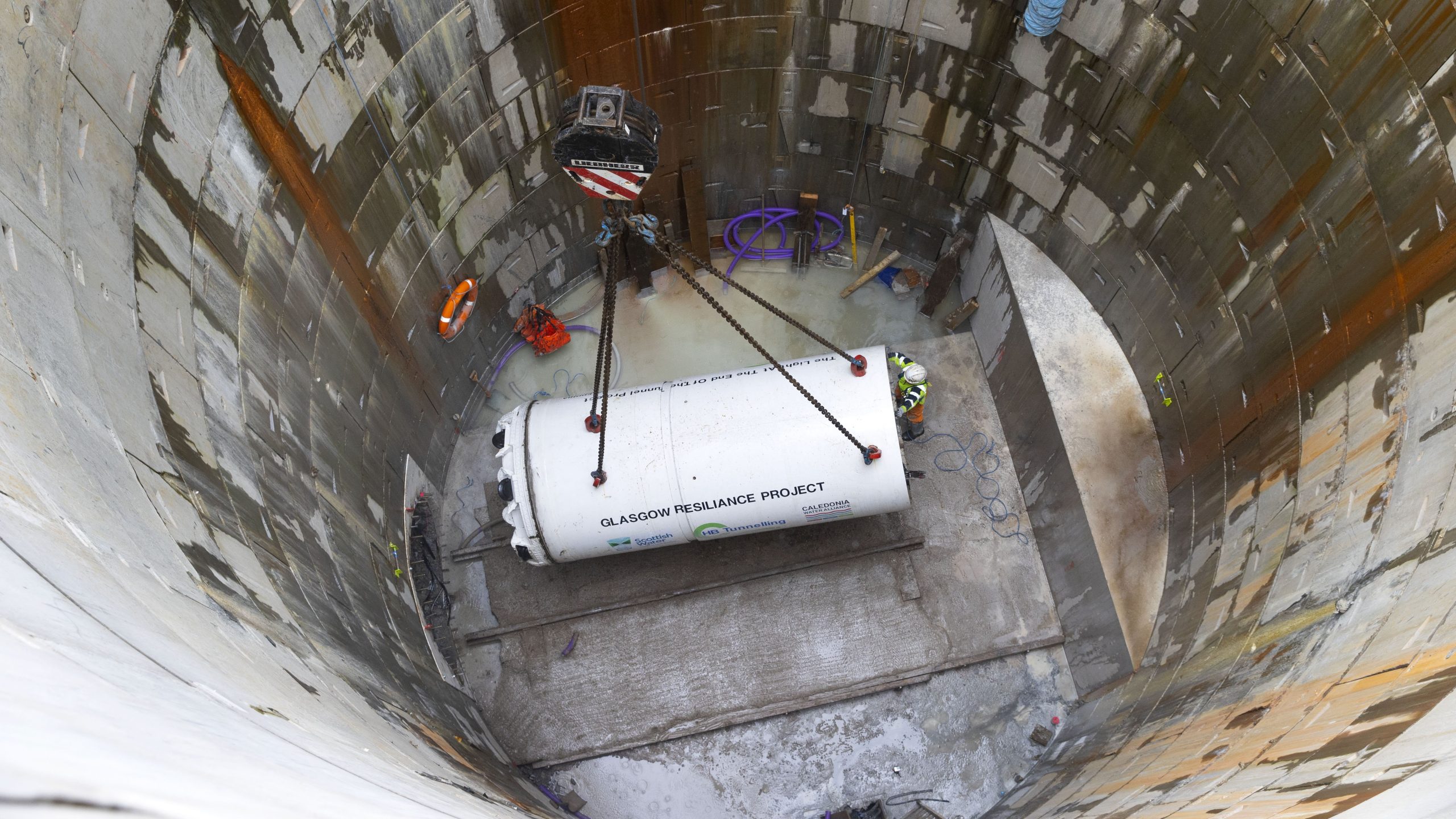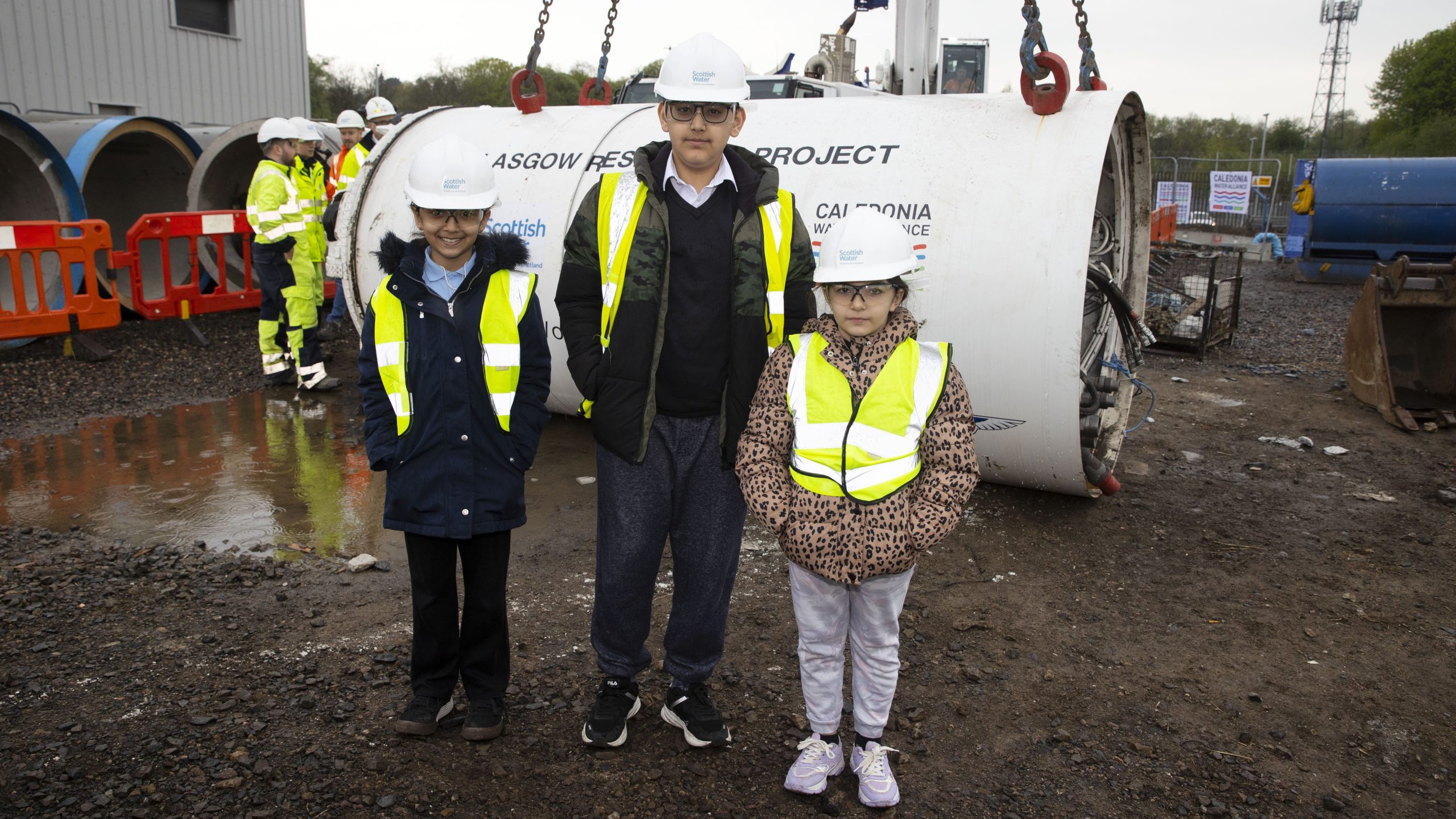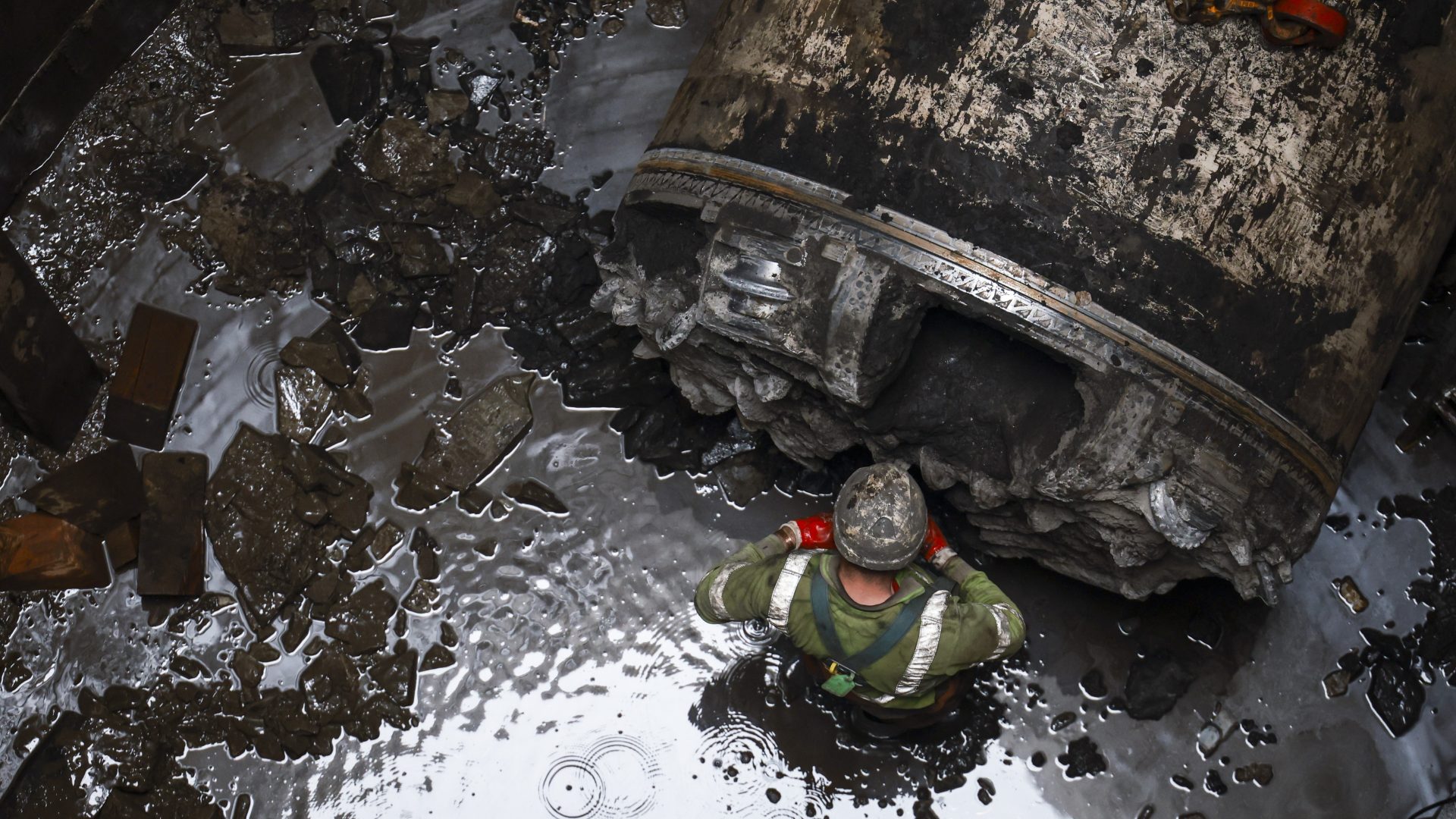A state-of-the-art tunnel boring machine has completed the installation of a key part of a new trunk water main in Glasgow, beneath a motorway and railway, as part of a multi-million pound Scottish Water project which will benefit almost one million customers.
The hi-tech machine, or TBM, has installed a 252 metre-long tunnel and section of water main from Broomloan Road in Ibrox, in the shadow of Ibrox Stadium.
The tunnel is part of more than seven miles of new water mains being installed in a project which will connect the Glasgow area’s network and the system in Ayrshire to increase resilience and protect supplies for customers.
The TBM installed the tunnel at a depth of up to 20 metres below ground – the equivalent of the height of a seven-storey building – while thousands of road and rail users above went about their daily business undisturbed and largely unaware.
It excavated about 1,311 tonnes of rock, such as sandstone and mudstone which went to landfill, and installed a total of 100 sections of pre-cast concrete pipes each measuring 2.5 metres in length and taking the total weight of the tunnel to about 500 tonnes.
The work using the TBM in Ibrox is a key part of a project to improve Scottish Water’s water mains network in the south west of Glasgow by installing new pipes which will connect the Glasgow area’s network and the system in Ayrshire to improve security of supply for customers.
Connecting the networks will provide a two-way water supply between the Milngavie Water Treatment Works (WTW) system, which provides water for more than 700,000 people across much of the Glasgow area, and the Bradan WTW system which supplies more than 200,000 customers across much of Ayrshire. It will also benefit almost 50,000 customers in East Renfrewshire.
In the event of a disruption to water supply in either Ayrshire or Glasgow, the new system will allow millions of litres of water to be transferred in either direction, minimising the impact on customers if there is a burst main or other operational issue.
The project, which involves the use of innovative construction materials and techniques to reduce carbon emissions and power requirements, is being delivered for Scottish Water by Caledonia Water Alliance, our alliance partner, and is expected to be completed in 2024.
A new pumping station is being built at Ibrox which will push water to the existing pumping station in Parkhouse/Darnley for onward distribution to Ayrshire.
The work in the south of Glasgow is the third and final stage of the overall investment which has already delivered improvements in Ayrshire.
The design of the new network incorporates carbon reducing construction materials and methods including innovative self-restraining pipe. Solar panels will also offset the power demands at the new Ibrox pumping station, with the new mains using gravity to reduce power use by 60%.

Four tunnels – one at Ibrox under the M8 motorway and the Glasgow-Ayr railway line, another under the Paisley Canal railway and White Cart Water, another under the Glasgow-Barrhead-Kilmarnock railway and one under the Levern Water will form part of the route of the new main.
The tunnels under the Glasgow-Barrhead-Kilmarnock railway and the Levern Water have already been completed.
The start of the construction of the tunnel at Ibrox, which is the biggest of the four and was carried out for CWA by HB Tunnelling Ltd of Doncaster, England, was witnessed by three pupils from Ibrox Primary School, located near the project, who took part in a competition to give the TBM a female name, in accordance with tunnelling tradition.
Primary five pupil Manha Raheel won the competition and the TBM was named Tytana.

The hydraulically-operated TBM worked 24-7 and completed its breakthrough when the cutting head emerged at a point in Bellahouston Park. Manually operated by a driver at the front, the TBM’s rotating cutting head cut into the earth and rock and the material was transported along a conveyor belt to a skip on the TBM before being removed by crane to the surface.
After the tunnel was installed, 22 sections of water main made from ductile iron were placed inside it, using a crane to lower the pipe sections down and a winch to pull them through the tunnel and into position before they were grouted and sealed.
Scottish Water liaised with Transport Scotland regularly during the tunnelling to ensure they were kept informed about its progress.
Dominic Flanagan, Scottish Water Delivery Manager, said:
“The installation of this particular part of the new water main using the TBM is arguably the highlight of this project so far and we are delighted to have completed it.
“Everything went well with this very challenging and complex operation and we were really pleased that our guests from Ibrox Primary school FC were able to join us and see the tunnelling start.
“Linking our supply systems in Glasgow and Ayrshire will ensure that high quality drinking water can continue to be supplied to current customers and for generations to come.
“The investment in below-ground infrastructure will also support the continued development above ground in communities across these areas and will enable them to continue to grow and thrive.”
Jane McKenzie, the project’s Communications Manager, said:
“From the very start of this project we have done everything possible to minimise any disruption for people like local schools, Rangers FC, local residents and road users.
“We’ve done everything we can to keep them informed and hosting the schoolchildren on-site to see the start of this piece of tunnelling was one of our ways of thanking them for their patience and understanding and was, we hope, an interesting and enjoyable experience for them. We know that they too will be pleased to learn of the TBM breakthrough and completion of this key stage of our work.”



